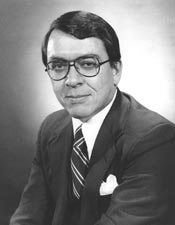GeographyDude
Gone Fishin'
“ . . . He [Reagan] sometimes slipped into motels and hotels through back doors, then begged off working the crowds waiting outside with a lame excuse: `I'm sorry, but I'm running behind schedule.' he did not go after the suburban straphangers until it was too late. . ”
http://www.cnn.com/ALLPOLITICS/1996/analysis/back.time/9603/29/index.shtml
This is Reagan campaigning in the 1976 Illinois Republican primary. And this is a campaign which is going exactly nowhere!
It wasn’t until the North Carolina Republican primary with Reagan hitting the pay dirt issue of the Panama Canal Treaty that his campaign really came to life. Ford and Reagan went into that summer’s Republican Convention almost tied, with Ford slightly leading. Reagan did the maneuver of announcing Pennsylvania Senator Richard Schweiker as his running mate in an attempt to pry off moderate votes. It didn’t work.
But what if it’s not even close?
How does American politics (and policy and society and economics) play out without Reagan as a force or becoming president? Please stop about ten years before the present to avoid current politics. Thanks.
Your ideas please.
http://www.cnn.com/ALLPOLITICS/1996/analysis/back.time/9603/29/index.shtml
This is Reagan campaigning in the 1976 Illinois Republican primary. And this is a campaign which is going exactly nowhere!
It wasn’t until the North Carolina Republican primary with Reagan hitting the pay dirt issue of the Panama Canal Treaty that his campaign really came to life. Ford and Reagan went into that summer’s Republican Convention almost tied, with Ford slightly leading. Reagan did the maneuver of announcing Pennsylvania Senator Richard Schweiker as his running mate in an attempt to pry off moderate votes. It didn’t work.
But what if it’s not even close?
How does American politics (and policy and society and economics) play out without Reagan as a force or becoming president? Please stop about ten years before the present to avoid current politics. Thanks.
Your ideas please.
Last edited:

